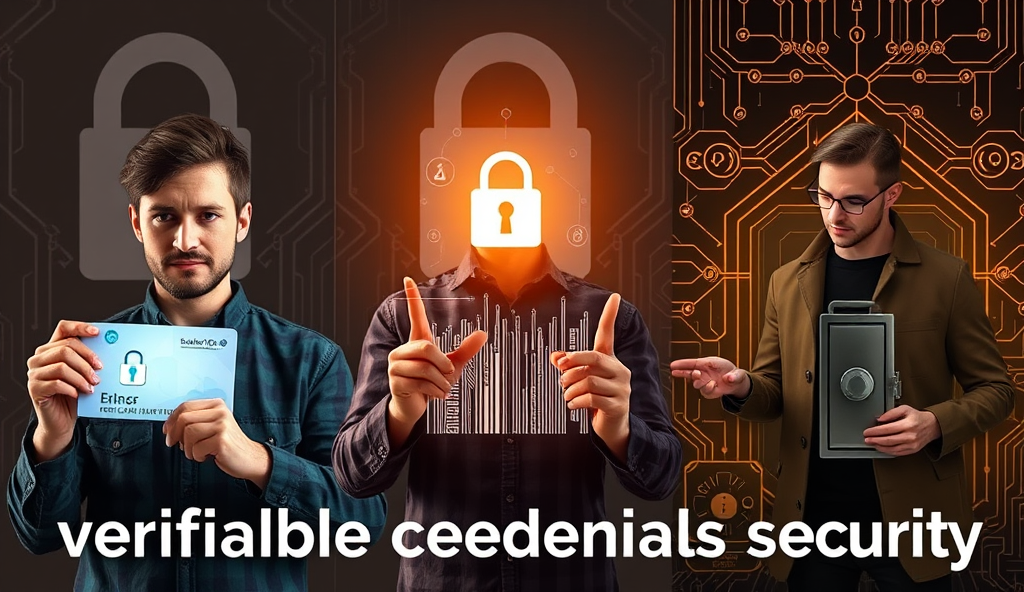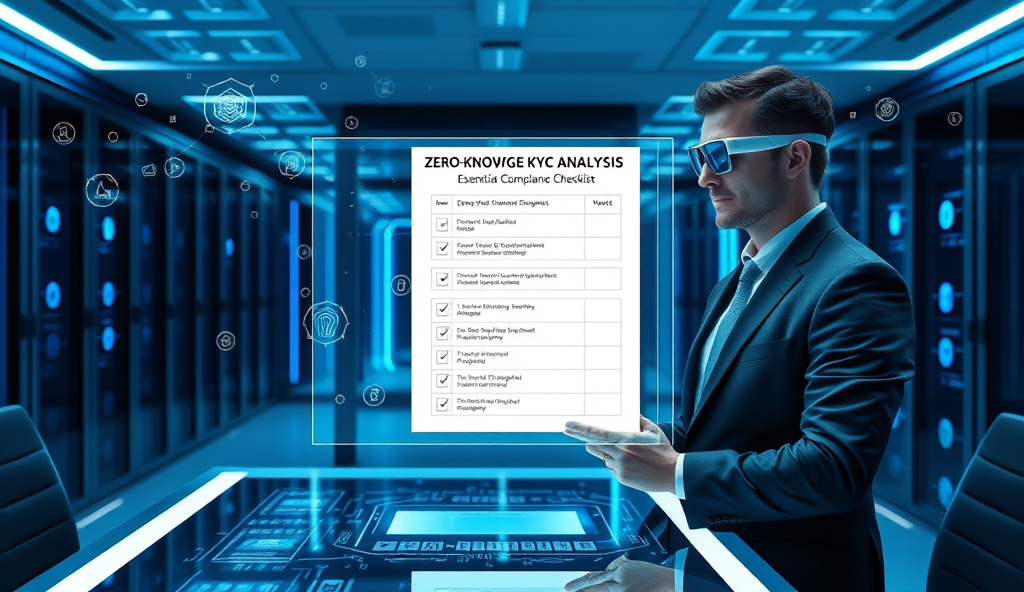Introduction to Soulbound Credentials and Taxation
Soulbound credentials, non-transferable digital assets tied to identity or achievements, present unique tax challenges as global regulators grapple with their classification. Unlike traditional cryptocurrencies, their immutability raises questions about taxable events, valuation methods, and reporting requirements across jurisdictions.
For example, the IRS currently treats them as intangible property, while Germany’s Federal Central Tax Office considers them exempt if used purely for authentication.
The tax treatment often hinges on whether soulbound credentials generate economic benefits or represent proof-of-participation without monetary value. In Singapore, IRAS taxes them as income if acquired through staking rewards but exempts educational certificates stored as soulbound tokens.
This disparity creates compliance complexities for users operating across borders, especially when credentials interact with DeFi protocols or governance systems.
Understanding these nuances is critical before exploring soulbound credentials’ technical foundations and specific use cases. The next section will define their core characteristics while examining how different blockchain implementations affect tax obligations, from Ethereum-based attestations to Polygon ID’s privacy-focused framework.
Key Statistics

Understanding Soulbound Credentials: Definition and Uses
Soulbound credentials are non-transferable digital tokens permanently linked to a user's blockchain identity serving as verifiable proof of skills affiliations or achievements without monetary exchangeability.
Soulbound credentials are non-transferable digital tokens permanently linked to a user’s blockchain identity, serving as verifiable proof of skills, affiliations, or achievements without monetary exchangeability. Unlike traditional NFTs, their immutability creates unique tax reporting challenges, as seen in the IRS’s classification of them as intangible property versus Germany’s authentication-based exemptions.
These credentials function across diverse applications, from educational certificates on Ethereum to healthcare qualifications stored as Polygon ID tokens, each carrying distinct tax implications depending on jurisdictional interpretation. For instance, Singapore’s IRAS differentiates between staking-earned credentials (taxable income) and academic records (exempt), highlighting the need for precise categorization.
As blockchain implementations vary—from public attestations to private zero-knowledge proofs—their tax treatment becomes increasingly complex, particularly when integrated with DeFi or governance systems. This technical diversity sets the stage for examining the global tax landscape for digital assets in the next section.
Global Tax Landscape for Digital Assets
The IRS treats soulbound credentials as taxable property if they derive value from economic utility aligning with its broader crypto asset framework.
The tax treatment of soulbound credentials varies significantly across jurisdictions, reflecting broader inconsistencies in digital asset regulation. While the EU’s MiCA framework excludes non-transferable tokens from VAT, Switzerland’s FINMA treats them as taxable assets if linked to economic benefits, creating reporting complexities for cross-border users.
Countries like Japan and Australia apply income tax to soulbound credentials earned through staking or DeFi participation, mirroring Singapore’s IRAS approach discussed earlier. Conversely, South Korea exempts academic and professional certifications stored on blockchain, provided they lack monetary utility, illustrating how functional use dictates tax obligations.
These divergent policies underscore the need for localized compliance strategies, particularly as hybrid models emerge—such as Canada’s provisional guidance treating soulbound tokens as taxable only upon conversion to tradable assets. This jurisdictional patchwork sets the stage for examining the United States’ nuanced stance in the next section.
Taxation of Soulbound Credentials in the United States
The EU’s Markets in Crypto-Assets (MiCA) regulation excludes non-transferable soulbound credentials from taxable asset classification unless they generate economic benefits offering clearer guidance than the IRS approach.
The IRS treats soulbound credentials as taxable property if they derive value from economic utility, aligning with its broader crypto asset framework. For example, credentials earned through DeFi participation or staking rewards are subject to income tax, similar to Japan’s approach, while non-monetary certifications may qualify for exemptions like South Korea’s model.
Hybrid cases, such as soulbound tokens convertible to tradable assets, trigger capital gains tax upon conversion, mirroring Canada’s provisional guidance. The lack of explicit IRS guidance creates uncertainty, particularly for credentials with dual utility—like blockchain-based professional licenses that could enhance earning potential.
This ambiguity contrasts with the EU’s clearer MiCA exclusions, which the next section explores. Meanwhile, U.S.
taxpayers must document acquisition costs and disposal events, as the IRS increasingly scrutinizes blockchain transactions via Form 8949.
Taxation of Soulbound Credentials in the European Union
Asia-Pacific jurisdictions mirror the EU’s economic-benefit principle for soulbound credentials taxation but with localized variations as seen in Singapore’s 2023 IRAS guidelines exempting non-transferable educational tokens while taxing tradeable loyalty points.
The EU’s Markets in Crypto-Assets (MiCA) regulation excludes non-transferable soulbound credentials from taxable asset classification unless they generate economic benefits, offering clearer guidance than the IRS approach. For instance, Germany’s Federal Central Tax Office explicitly exempts educational certifications stored as soulbound tokens, aligning with MiCA’s focus on transactional crypto assets rather than identity-based credentials.
Taxable events arise only when soulbound tokens facilitate income generation, such as loyalty rewards convertible to goods, triggering VAT or income tax under EU member states’ national laws. France’s 2023 crypto tax update clarified that soulbound professional licenses remain untaxed unless monetized, contrasting with hybrid cases like convertible DeFi credentials taxed upon conversion.
This structured framework reduces ambiguity compared to U.S. rules, though reporting requirements vary by jurisdiction—setting the stage for Asia-Pacific’s diverse approaches, explored next.
Taxation of Soulbound Credentials in Asia-Pacific Regions
Regulators are expected to introduce standardized frameworks for soulbound credential taxation by 2025 with the EU’s proposed MiCA 2.0 legislation potentially classifying them as non-financial instruments exempt from capital gains tax.
Asia-Pacific jurisdictions mirror the EU’s economic-benefit principle for soulbound credentials taxation but with localized variations, as seen in Singapore’s 2023 IRAS guidelines exempting non-transferable educational tokens while taxing tradeable loyalty points. Japan’s National Tax Agency requires income reporting only when soulbound tokens like professional certifications generate revenue, aligning with their crypto asset tax framework.
Australia’s ATO treats soulbound credentials similarly to intangible assets, taxing them only upon monetization, as demonstrated in their 2024 ruling on blockchain-based licenses. South Korea’s revised crypto laws, however, impose stricter reporting for all tokenized credentials regardless of transferability, creating compliance challenges for identity-focused use cases.
These divergent approaches reflect the region’s regulatory experimentation, contrasting with Europe’s unified MiCA standards—a complexity further amplified in less-defined jurisdictions examined next.
Taxation of Soulbound Credentials in Other Jurisdictions
Emerging markets like Brazil and South Africa apply hybrid tax models for soulbound credentials, blending crypto asset rules with traditional income tax frameworks. Brazil’s RFB 2023 guidance treats non-transferable professional badges as tax-exempt unless converted to fiat, while Nigeria’s FIRS imposes a flat 10% capital gains tax on all tokenized assets regardless of transferability status.
Middle Eastern regulators take contrasting approaches, with UAE’s free zones exempting soulbound credentials entirely while Saudi Arabia’s ZATCA requires annual disclosure of all blockchain-based assets. This mirrors the Asia-Pacific fragmentation discussed earlier but introduces new compliance layers for multinational credential holders operating across these regions.
Canada’s CRA and Mexico’s SAT have yet to issue specific soulbound token guidelines, creating uncertainty for taxpayers who must analogize existing crypto tax rules—a challenge that underscores the importance of precise reporting methods explored next.
Key Considerations for Reporting Soulbound Credentials on Tax Returns
Given the jurisdictional variations in tax treatment highlighted earlier, taxpayers must document acquisition dates and purposes for all soulbound credentials, especially when operating across regions like UAE free zones or Saudi Arabia. Brazil’s RFB exemption for non-transferable badges requires proof of non-conversion to fiat, while Nigeria’s FIRS mandates capital gains reporting regardless of transferability status.
Multinational holders should maintain separate records for each jurisdiction, noting whether credentials were earned, purchased, or received as income—critical distinctions under regimes like South Africa’s hybrid model. Blockchain explorers often serve as audit trails, but taxpayers in Canada and Mexico lacking clear guidance should preserve wallet signatures and transaction hashes as supporting evidence.
Proper categorization determines whether soulbound credentials trigger taxable events, setting the stage for exploring potential deductions in credential-related expenses next.
Potential Deductions and Credits Related to Soulbound Credentials
Taxpayers may offset soulbound credential liabilities by claiming blockchain network fees as deductible expenses in jurisdictions like the US, where IRS guidelines treat gas fees similarly to transaction costs. South Africa’s SARS allows deductions for credential-related education expenses if directly tied to income-generating activities, mirroring their hybrid tax model discussed earlier.
Germany’s Finanzamt permits write-offs for soulbound credential storage costs when using enterprise-grade wallets, provided taxpayers maintain documented proof of business use. Brazilian developers creating non-transferable badges can claim R&D tax credits under RFB rules if credentials meet innovation criteria, though Nigeria’s FIRS restricts such benefits for capital assets.
These jurisdictional nuances underscore why proper documentation—highlighted in prior sections—is critical for claiming deductions, as regulators increasingly scrutinize crypto-related expenses. This evolving landscape sets the stage for examining future trends in soulbound credential taxation next.
Future Trends in Taxation of Soulbound Credentials
Regulators are expected to introduce standardized frameworks for soulbound credential taxation by 2025, with the EU’s proposed MiCA 2.0 legislation potentially classifying them as non-financial instruments exempt from capital gains tax. The IRS may issue specific guidance on reporting soulbound credentials as intangible assets, following its 2023 crypto tax form updates requiring detailed wallet address disclosures.
Emerging markets like India and Singapore are piloting simplified tax reporting for soulbound credentials tied to education or professional licenses, building on South Africa’s hybrid model discussed earlier. Brazil’s RFB is testing blockchain analytics tools to automatically track credential-related deductions, addressing the documentation challenges highlighted in prior sections.
As decentralized identity systems expand, tax authorities may treat soulbound credential transactions as taxable events only when linked to commercial activities, similar to Germany’s business-use approach. These developments will require taxpayers to stay informed about jurisdictional shifts in crypto tax rules for soulbound credentials while maintaining rigorous records.
Conclusion: Navigating Tax Obligations for Soulbound Credentials
As jurisdictions worldwide grapple with classifying soulbound credentials for tax purposes, proactive compliance remains crucial despite regulatory ambiguity. The IRS’s 2023 guidance on non-transferable tokens suggests treating them as intangible assets, while EU proposals lean toward exempting non-monetary soulbound credentials from VAT.
Tracking acquisition costs and usage patterns becomes essential, as seen in Germany’s approach where educational soulbound credentials qualify for tax-free learning allowances. Singapore’s IRAS recently clarified that non-tradable credentials only trigger taxable events when converted to liquid assets through approved platforms.
Future-proofing your tax strategy requires monitoring jurisdictional shifts, particularly the OECD’s upcoming framework for tokenized identity assets. While current reporting methods vary, maintaining detailed records of credential interactions positions holders for seamless compliance as regulations evolve globally.
Frequently Asked Questions
How does the IRS classify soulbound credentials for tax purposes?
The IRS treats them as intangible property if they have economic utility—track acquisition costs and report income from staking or DeFi rewards using Form 8949.
Are educational soulbound credentials taxable in the EU under MiCA?
No—MiCA excludes non-transferable educational tokens from VAT but document usage to prove they lack commercial intent.
Can I deduct blockchain fees for managing soulbound credentials?
Yes in the US—treat gas fees like transaction costs and use tools like Koinly to track deductible expenses.
Do I owe taxes if my soulbound credential converts to a tradable asset?
Yes—jurisdictions like Canada tax conversion events as capital gains so record timestamps and fair market values.
How should multinational users report soulbound credentials?
Maintain jurisdiction-specific records—use Accointing’s tagging feature to separate taxable vs exempt credentials by region.





